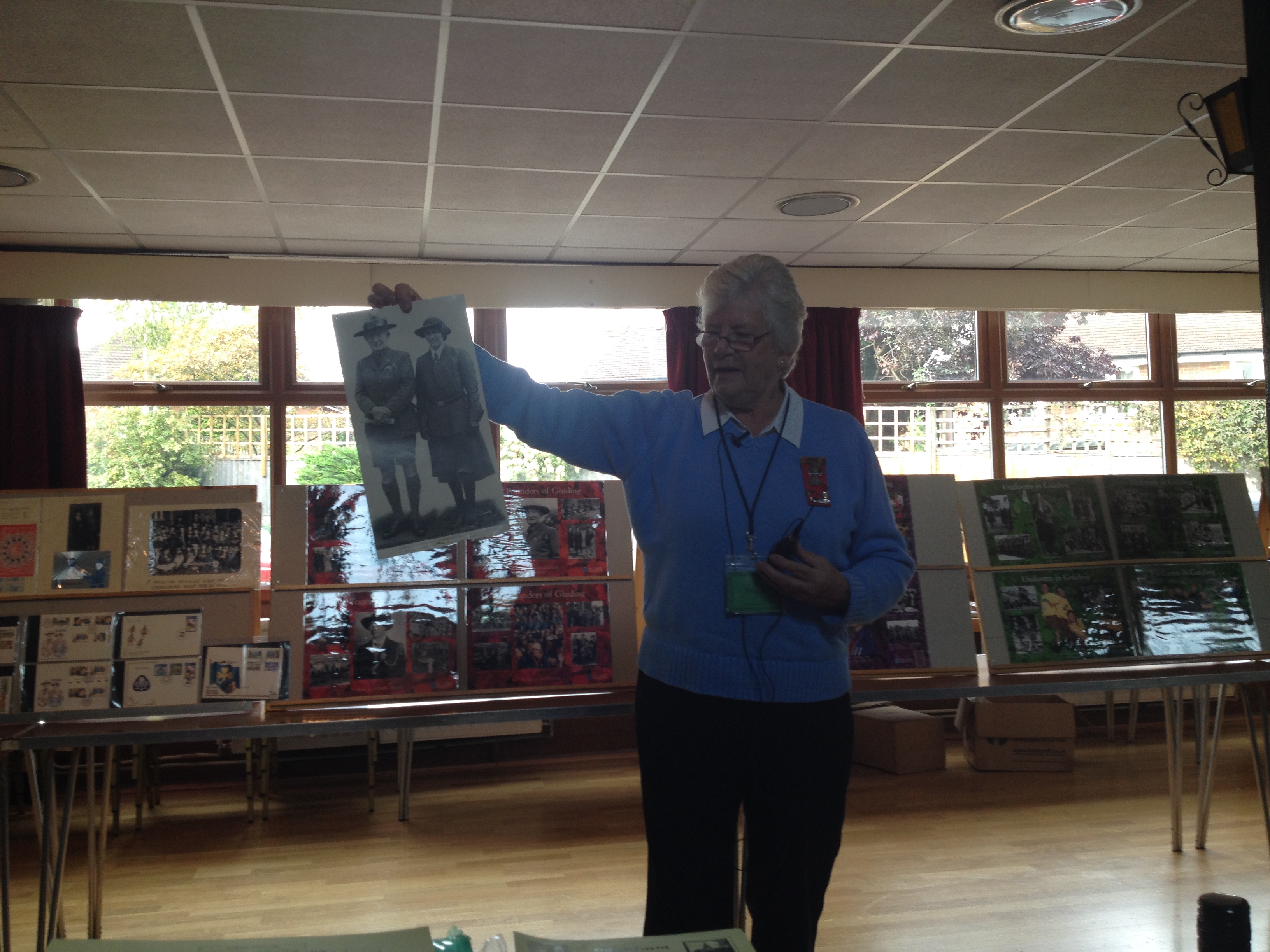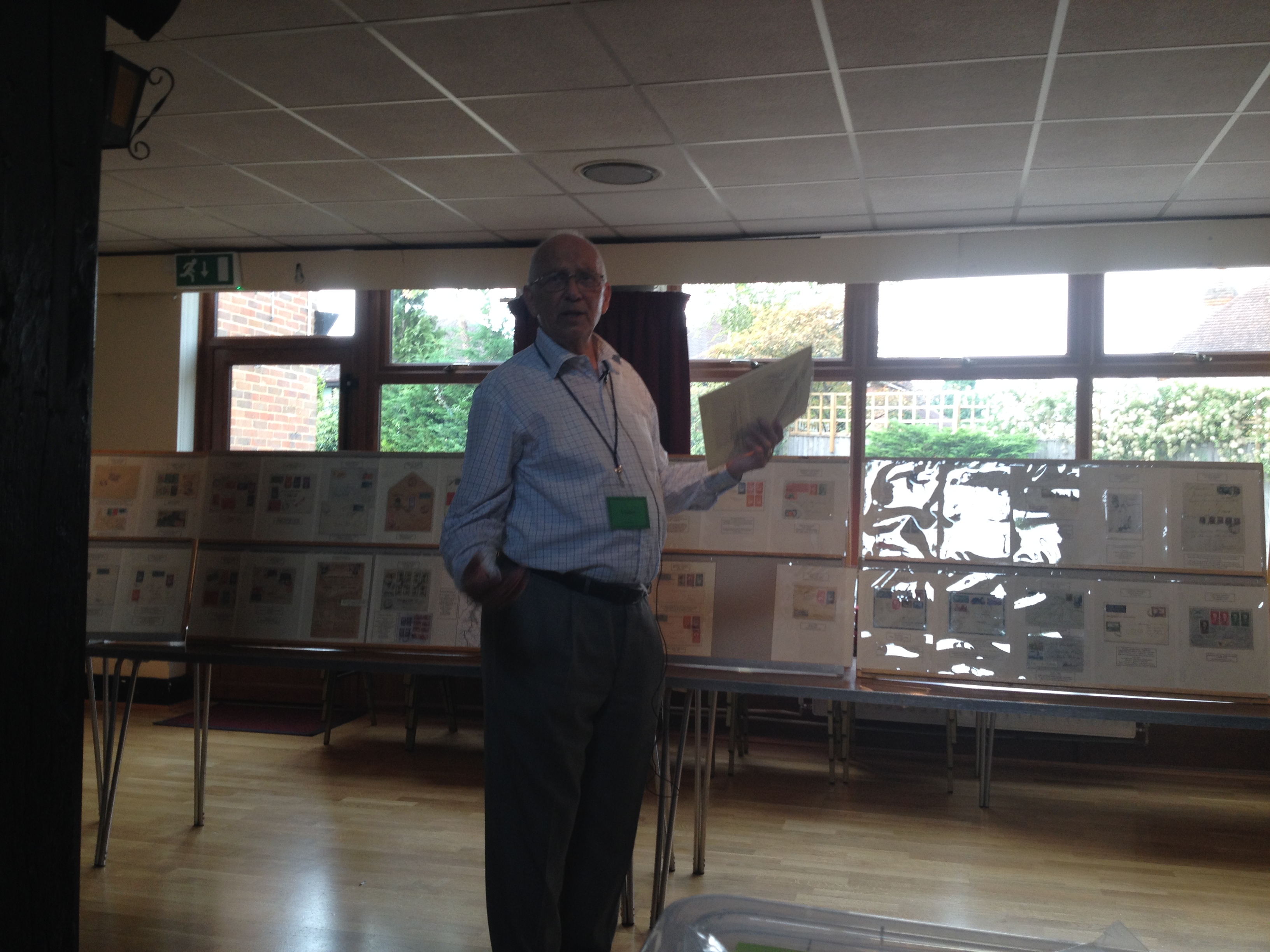In September we were treated to a double bill from husband and wife team, Ann and Brian Asquith. Ann started with her display on the Girl Guides. Ann was County Commissioner for Greater London West for many years, but has now retired.
Ann gave us a potted history of the Guides showing us various material from stamp sheets, medals, photos, covers and documents. Ann mentioned that it all started back in 1907 when Robert Baden-Powell held a camp for boys at Brownsea Island in Dorset to test his Scouting ideas and from there, Scouting was born. In 1909, Girls 'gate crashed' the first Boy Scout Rally at Crystal Palace, attracting the attention of Baden-Powell. They asked him to offer 'something for girls too,’ hence the Girl Guides Association was formed - a separate organisation for girls - led by Agnes Baden-Powell, Robert Baden-Powell's sister in 1910. In 1918, Olave Baden-Powell (Robert Baden-Powell's wife) was appointed Chief Guide. Incredibly, both Robert Baden-Powell and his wife, Olave share the same birthday, 22 February, which became World Thinking Day - a day when members of Guide organisations belonging to the World Association of Girl Guides and Girl Scouts (WAGGGS) think about each other. We were left with the thought that the Girl Guides is in 150 different countries and is the biggest female organization in the world.
Husband Brian, gave us a fascinating display on ‘Ethiopian Air Mails.’ Brian became interested in planes when he was a small boy in 1935. He joined the RAF and became a radio operator on a Lancaster bomber in 1952-53, using the same radio equipment that was used during the war.
Brian showed us the first air mail cover for the first flight (supposedly) from Ethiopia which was dated 24 August 1929, unfortunately the plane did not turn up, and so, the cover went by train instead! The first official flight, and proper air mail service started on the 26 September 1929 and was piloted by a Frenchman. Brian continued to show us various covers and overprints throughout the years that included the turmoil of the Italian invasion, and also the British who dropped leaflets in 1941 and subsequently became the liberators of the country.

